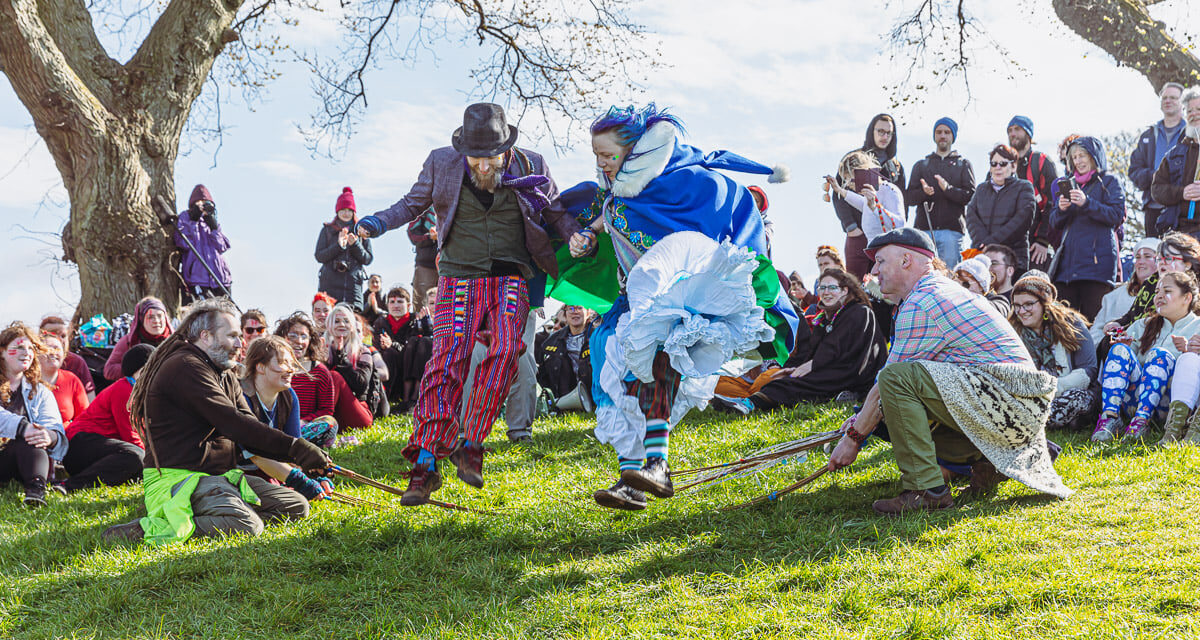People are turning to movements believed to be closer to nature, not necessarily because of religious adherents, but rather because of disillusionment with modernization.
Movements towards nature, away from major religions and the problems of the modern world, are becoming more and more popular. Although there is no need to think about naked dancing around bonfires and animal sacrifices, according to modern pagans, a so-called return to ancient traditions is indeed necessary.
Paganism is so popular in the United States that the number of followers has increased tenfold in 20 years.
About one and a half million Americans now consider themselves pagans, while this number was only 134,000 in 2001. Their number has jumped mainly in recent years, primarily thanks to TikTok, and more precisely to the conquering #witchtok. Divination, astrology and healing with plants, as well as related videos, are incredibly popular on the social platform.
According to experts, this can be traced back to nothing more than the fact that people are simply fed up with the modern world.
In England and Wales, paganism has become more popular since the 1970s. According to many, this can clearly be traced back to the 1973 horror film The Man Made of a Cane. According to the Economist article, based on the 2021 census data, around 74,000 people declared themselves pagans, 17,000 more than in 2011. And the number of followers of traditional major religions is shrinking more and more.
By the way, this is not the case in Hungary either.
where, according to the data of the Central Statistical Office (KSH), only 2.9 million of the followers of the two largest denominations declared themselves Catholic in 2022, and nearly 950,000 were Reformed. In 2001, there were still 5.5 million Catholics and 1.6 million Protestants, according to census data. At the same time, the proportion of those who did not want to answer the question increased significantly, more than threefold.
Although the KSH did not list the pagan religion separately, the new trend has followers in this country as well.
They are presumably among the 5.5 million Hungarian citizens who either did not declare their religious affiliation, or simply indicated that they belong to a different religious community or denomination.
Pagan comes from the Latin word paganus, meaning rural, which was a collective term for the irreligious or those outside the known religions. It was primarily used for those who neither followed the Christian nor the Jewish faith in the Roman Empire, or were polytheists.
Although exact descriptions are not available, on the whole the ancient Hungarian religion - the religion before the conversion of the Hungarians to Christianity - can also be considered a pagan religion, since it was not based on monotheism either, although it did not rely only on natural magic, but could have been closer to that in the region at the time ( in Eastern Europe) to the prevailing Tengrism and shamanism.
According to experts speaking to National Geographic, the major world religions simply do not have an adequate answer to today's problems, such as climate change and other difficulties.
For this reason, more and more people are turning to spirituality.
Of course, this does not involve animal sacrifice or other popular beliefs, but the followers of the movement, New Paganism, want to draw attention to harmony with nature.
In England, by the way, already last year III. It was also revealed that King Károly was secretly a follower of the movement when a green human face was placed on his coronation invitation. Although this theory has been disproved, many believe that modern paganism will become more and more popular in the coming years.
According to The Guardian's article, the Beltane holiday at the end of April and beginning of May has been visited by more and more people over the last ten years, and the organizers welcome anyone to the festival, which involves lighting campfires, dancing and singing, regardless of religion. There is only one requirement:
everyone must appear in clothes, i.e. with this the other belief, according to which pagans dance naked around the fires, was dispelled.
According to their followers, their movement not only makes people like nature, but also helps them "return" to the rhythm of the seasons instead of the gray weekdays, and for this they have appropriate celebrations and festivals at the beginning and end of each season, closing and opening a new period.
In Hungary, even before the amendment of the church law, it was possible to officially know about many communities that, in their perception, belonged more to modern paganism than to the world of historical, traditional churches.
People turn to these communities because of the above-mentioned disillusionment with modernization, not necessarily because they are religious.
"Today in Hungary, the number of people who belong to some kind of pagan community can be put at at least ten thousand, but maybe even more. These movements, which set their banner a return to nature and even to their Hungarian roots, are becoming more and more popular. At the same time, there is a kind of confusion with the latter, since exact descriptions are not available, so different communities celebrate them in different ways," theologian Zoltán Cser, director of the Tan Kapuja Buddhist Church, told Index.
Cser pointed out: to the extent that people move to the big cities, there is also a return to the countryside, due to the "distance from the modern world".
They primarily strive for self-sufficiency, they want to be close to nature. By the way, the trend is continuous, i.e. more and more people are looking for these modern-day pagan movements, because they feel that the historical churches are not able to provide answers to their problems.
Cover image: Beltane holiday growing in popularity in the UK
Credit: Facebook/Beltane Fire Society/Vince Graham












